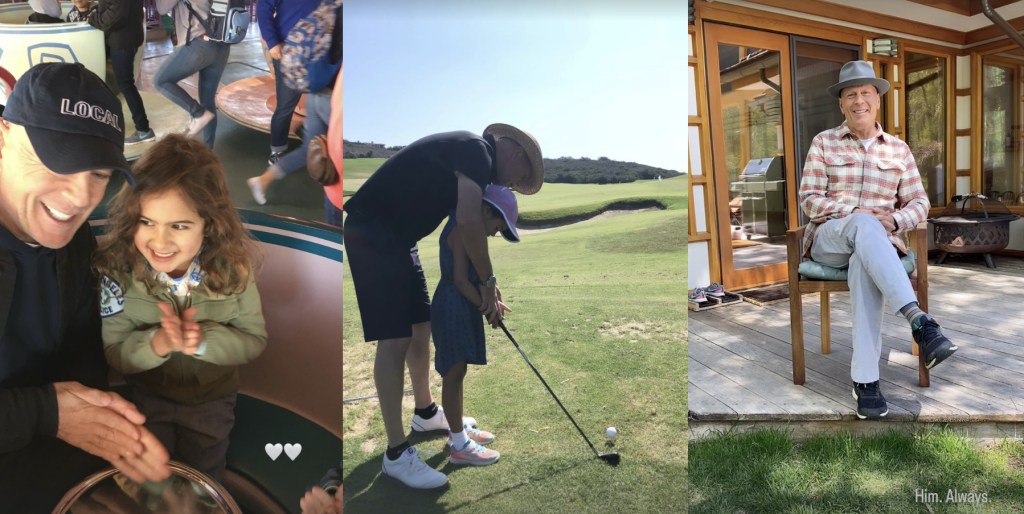Emma Heming Willis is sharing a rare look into her family life as Bruce Willis continues to battle aphasia and frontotemporal dementia (FTD). In a series of photos and videos shared to her Instagram Stories over the weekend, Heming, 46, gave a glimpse of the Die Hard actor and their daughters, Mabel, 12, and Evelyn, 10.
The series of throwback pics, shared on Sunday, began with a black-and-white photo of the couple with their daughters, according to PEOPLE. Emma simply captioned the image, “Them. Always.” A second photo showed Bruce, 69, helping one of his daughters with her golf swing technique, with a third image showing the actor riding a fairground teacups ride with Mabel.
Videos by PopCulture.com

Emma also shared a rare video of Bruce, in which he could be seen sitting on the porch and yodeling for the camera. The Pulp Fiction actor laughed as he said, “All right, folks, this is…” before the video cut out. Emma wrote over top the clip, “Him. Always.”
It’s unclear when the clip was recorded, as Bruce is battling aphasia, a disorder that affects how you communicate, per the Mayo Clinic, as well as frontotemporal dementia. His family – Emma, his ex-wife Demi Moore, and his daughters Rumer, Scout, Tallulah, Mabel, and Evelyn – announced in March 2022 that he was diagnosed with aphasia before Emma later confirmed in February 2023 that he’d been diagnosed with frontotemporal dementia.
Opening up about his diagnosis when speaking to Town & Country in October, Emma said her husband’s early symptoms were initially mistaken for the return of his childhood stutter.
“Bruce has always had a stutter, but he has been good at covering it up,” she said. “As his language started changing, it [seemed like it] was just a part of a stutter, it was just Bruce. Never in a million years would I think it would be a form of dementia for someone so young.”
Emma added that she isn’t hiding anything from her daughters when it comes to their father’s health, sharing, “this disease is misdiagnosed, it’s missed, it’s misunderstood, so finally getting to a diagnosis was key so that I could learn what frontotemporal dementia is and I could educate our children. I’ve never tried to sugarcoat anything for them. They’ve grown up with Bruce declining over the years. I’m not trying to shield them from it.”








